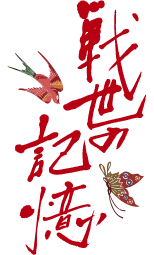
We buried war funds in bomb holes.
We buried war funds in bomb holes.
Yoshiyasu Oshiro (19大城由安)
Date of birth: October 5, 1931
Place of birth: Haebaru-town
At the time: 14-year-old kokumin gakko (national school) student
It was a short distance between our house and the air-raid shelter, so we were going back and forth between the house and shelter at night almost all the time.
There were many Japanese soldiers around this area. What was very troublesome was that we got caught many times for suspicion of spying.
However, among those soldiers, there were some who knew me and said: “This person is a local civilian.” That happened about twice.
After that, although I can’t clearly recall the name of the unit, an accounting unit of the Japanese army forcefully recruited me. It was decided that Seizo Kinjo, my relative, and I would be going because our air-raid shelters were next to each other.
Although I don’t know the monetary value, we carried a relatively large amount of war funds from the air-raid shelters to bomb holes and buried them all in those holes in a week.
The bomb holes were located about 50 meters away from the air-raid shelters. We would spend a whole day burying the money and covering them all with earth.
We would do the same work the next day and cover them all with earth the next day again. We kept doing this for a week. We performed this work many times, but there were some days when we were able to carry the war funds only one or twice. The reason was that we had to stop working because it was considered very dangerous when flares went up from Naha. The war funds were big money, so soldiers served as escorts, and we buried the money from seven o’clock in the evening to ten o’clock at night over a period of one week.
There apparently were many other people who have done this work. There are four persons who were involved in this work that are still alive now, but it seems they are reluctant to talk about this matter. I have talked about this many times because immediately after the end of the war, officials concerned and various other people came to me, asking for information on the work we had done. In particular, there was a person named Yoshinaka Shiroma, who was in charge of this work, but this person was unable to speak Japanese even though the person could listen and understand what was being spoken. Therefore, whenever people from mainland Japan came to investigate this matter, they came to see me right away.
When this task of burying war funds was over, we were set free, so we moved to find another air-raid shelter.
At the time, Lieutenant General Ushijima apparently came to our place and told us: “Everyone, leave this place, Tsukazan, quickly.” The day after we buried the war funds, military officials came and told us: “You people, get out of this place.” In this way, we were all moved out from Tsukazan.
What I cannot forget
If I think about it now, during the war, I became unable to tell whether the Japanese soldiers, who were supposed to be on our side, were the real enemies, or the American forces were the enemies. I’ve really seen various things from the time I was a child. I saw people getting killed and women being assaulted. Therefore, I think it was not possible to determine whether the Japanese army or the American forces were the real enemies.
I have seen Japanese soldiers, who were supposed to be our allies, raise Japanese swords at Okinawans and chase them out of their homes, and I have also seen American soldiers rape many women, so I couldn’t tell who were on our side. I just think that we should never wage war.
What I saw in Maehira, Itoman city – what soldiers carrying Japanese swords did there – is that they broke into civilian air-raid shelters in Maehira, killed the civilians who were there by throwing grenades into the shelter, and took over the shelter for themselves. Thinking about that right now, it’s hard to believe that human beings would really do something like this. Thinking about that, all I want to say is that people should absolutely never wage war.
Yoshiyasu Oshiro (19大城由安)
Date of birth: October 5, 1931
Place of birth: Haebaru-town
At the time: 14-year-old kokumin gakko (national school) student
It was a short distance between our house and the air-raid shelter, so we were going back and forth between the house and shelter at night almost all the time.
There were many Japanese soldiers around this area. What was very troublesome was that we got caught many times for suspicion of spying.
However, among those soldiers, there were some who knew me and said: “This person is a local civilian.” That happened about twice.
After that, although I can’t clearly recall the name of the unit, an accounting unit of the Japanese army forcefully recruited me. It was decided that Seizo Kinjo, my relative, and I would be going because our air-raid shelters were next to each other.
Although I don’t know the monetary value, we carried a relatively large amount of war funds from the air-raid shelters to bomb holes and buried them all in those holes in a week.
The bomb holes were located about 50 meters away from the air-raid shelters. We would spend a whole day burying the money and covering them all with earth.
We would do the same work the next day and cover them all with earth the next day again. We kept doing this for a week. We performed this work many times, but there were some days when we were able to carry the war funds only one or twice. The reason was that we had to stop working because it was considered very dangerous when flares went up from Naha. The war funds were big money, so soldiers served as escorts, and we buried the money from seven o’clock in the evening to ten o’clock at night over a period of one week.
There apparently were many other people who have done this work. There are four persons who were involved in this work that are still alive now, but it seems they are reluctant to talk about this matter. I have talked about this many times because immediately after the end of the war, officials concerned and various other people came to me, asking for information on the work we had done. In particular, there was a person named Yoshinaka Shiroma, who was in charge of this work, but this person was unable to speak Japanese even though the person could listen and understand what was being spoken. Therefore, whenever people from mainland Japan came to investigate this matter, they came to see me right away.
When this task of burying war funds was over, we were set free, so we moved to find another air-raid shelter.
At the time, Lieutenant General Ushijima apparently came to our place and told us: “Everyone, leave this place, Tsukazan, quickly.” The day after we buried the war funds, military officials came and told us: “You people, get out of this place.” In this way, we were all moved out from Tsukazan.
What I cannot forget
If I think about it now, during the war, I became unable to tell whether the Japanese soldiers, who were supposed to be on our side, were the real enemies, or the American forces were the enemies. I’ve really seen various things from the time I was a child. I saw people getting killed and women being assaulted. Therefore, I think it was not possible to determine whether the Japanese army or the American forces were the real enemies.
I have seen Japanese soldiers, who were supposed to be our allies, raise Japanese swords at Okinawans and chase them out of their homes, and I have also seen American soldiers rape many women, so I couldn’t tell who were on our side. I just think that we should never wage war.
What I saw in Maehira, Itoman city – what soldiers carrying Japanese swords did there – is that they broke into civilian air-raid shelters in Maehira, killed the civilians who were there by throwing grenades into the shelter, and took over the shelter for themselves. Thinking about that right now, it’s hard to believe that human beings would really do something like this. Thinking about that, all I want to say is that people should absolutely never wage war.


